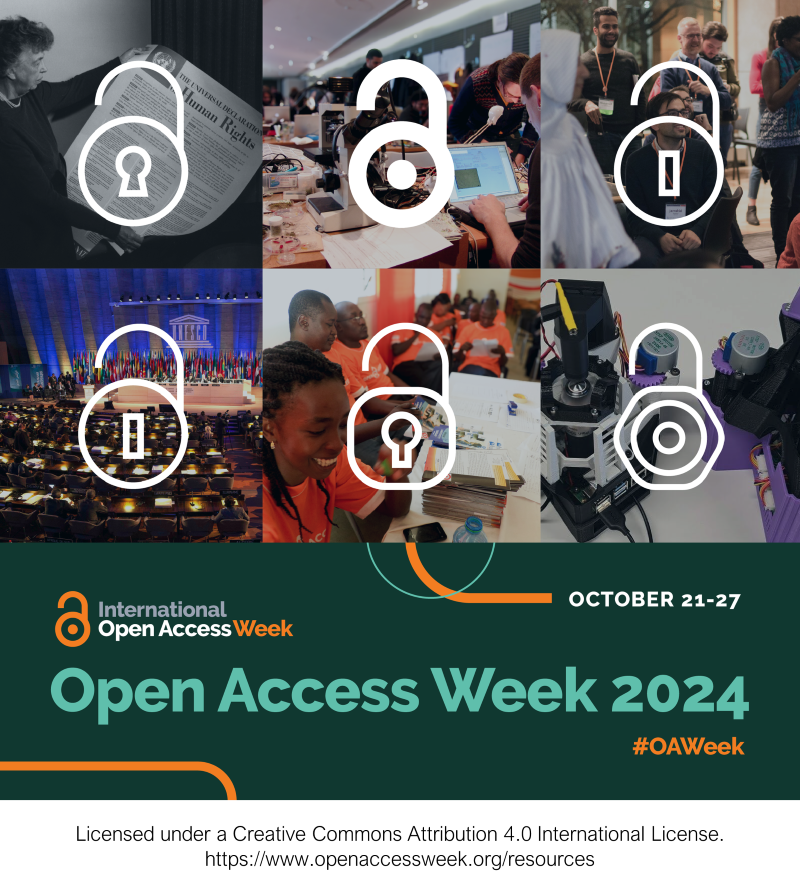Guest post written by Jason Boczar, Digital Scholarship and Publishing Librarian

During the last full week of October each year, members of the research community come together for Open Access Week. Librarians and researchers around the globe take time to discuss the impact open access (OA) has had over the last few decades, identify recent trends in OA, and tackle new issues and problems in open access. OA has changed the course of research by providing researchers with new ways of interacting with research material. In order to maintain its relevancy, it is important to continually discuss and evaluate OA’s progress toward making research freely available across the world.
Open Access Week is also a time to look at the future. It’s a time to acknowledge where there is room to grow. One area that has always been at the forefront of OA is the removal of price barriers. In the original Budapest Open Access Initiative, they “…call on all interested institutions and individuals to help open up access to the rest of this literature and remove the barriers, especially the price barriers, that stand in the way.” (Emphasis added, https://www.budapestopenaccessinitiative.org/read/). One way that a researcher can help eliminate price barriers is by depositing a version of their research manuscript in an institutional repository. This is called .

At USF, the Libraries have been supporting OA since 2007 when it helped publish the OA journal Numeracy (https://digitalcommons.usf.edu/numeracy/). Since then, our institutional repository, has helped to publish over 20 OA journals. Articles in these journals are free for readers, bypassing the paywalls that are common with the big, commercial publishers. USF has also worked hard to support other OA efforts by utilizing the repository for OA textbooks, conferences and events, and other faculty publications.
So, as we think about OA during Open Access Week, we should consider how the movement attempts to bring research into the hands of those who couldn’t traditionally access it. We can think about how open research helps with increased citations and dissemination. OA is also a fundamental practice of funder compliance such as publishing articles or research data as openly accessible.
If you’re a USF researcher and would like to discuss how you can make your research OA (such as with Green OA), please contact Jason Boczar, Digital Scholarship and Publishing Librarian.
Find more posts about Open Access on Digital Dialogs.